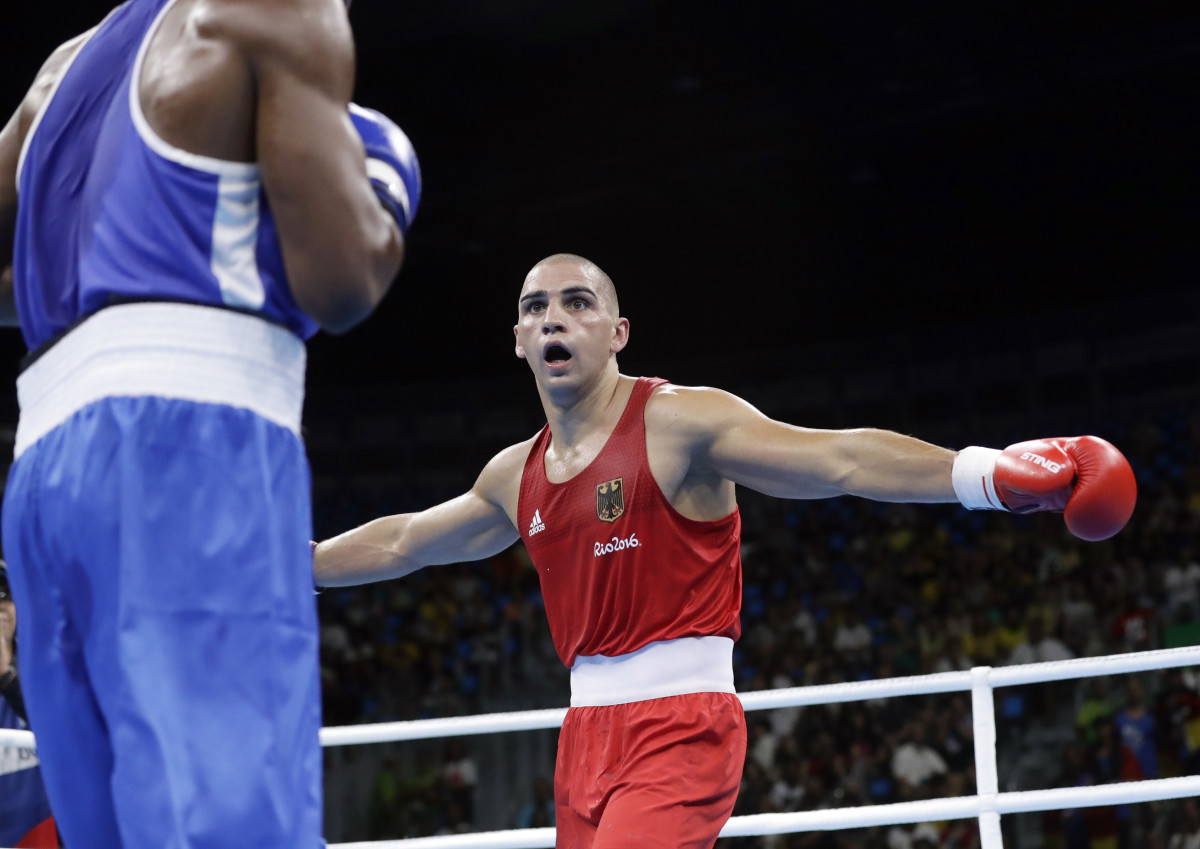With a new scoring system, boxing ready for an Olympic fight
RIO DE JANEIRO (AP) After Roy Jones Jr. was infamously robbed of a gold medal by horrific judging in the 1988 Seoul Olympics, amateur boxing began a 25-year search for a better way to determine a winner.
The sport's organizers believe they finally found it by returning to basics: a traditional 10-point system administered by rigorously trained judges.
Rio de Janeiro is hosting the first Olympic tournament since the sport abandoned its derided punch-counting system three years ago and went to the standard scoring used by professionals. While fans who only watch amateur boxing in the Olympics will notice the absence of headgear on the men for the first time since 1980, the International Boxing Association (AIBA) is hoping they'll also see positive changes in fighting styles and coherent results under the new rules.
''What you're starting to see is boxing again,'' said Tom Virgets, an AIBA executive committee member. ''It's a much more attractive sport, like it used to be.''
AIBA has an impossible task in attempting to find a faultless scoring system. From elite professionals to weekend warriors, many boxers will always be unshakably convinced they were robbed in any loss that goes to a decision. Olympic bouts only last three rounds for men and four for women - often simply not enough time to determine a clear winner.
Yet Virgets said the scoring change has steadily diminished the amount of public whining about the results in a notoriously fractious sport. The impact on fighters' styles is also undeniable, with less holding and cleaner punching in the first two days in Rio.
''We've had to adapt some skills and techniques, but the game is still about me hitting you more than you hit me,'' said U.S. coach Billy Walsh, who fought for Ireland at the Seoul Games.
The scoring changes have garnered near-uniform praise for AIBA, which hasn't had much of that lately. Along with another Olympic cycle of corruption allegations, the sport's governing body has been criticized in recent years for its headgear removal and its decision to invite professionals to Rio as it attempts to evolve Olympic-style boxing into a more television-friendly sport.
The punch-counting system, which underwent multiple tweaks and changes over a quarter-century, was widely loathed. The concept was created after a combination of blatant corruption and incompetence led to a gold medal being awarded to South Korea's Park Si-Hun after he was comprehensively thrashed by Jones.
But the computer-based scoring system was based around the Sisyphean task of pushing a button to recognize every punch scored in every fight. Virgets also said the amateur judges often were trained inconsistently and evaluated ruthlessly by AIBA, forcing them to worry about their job security even more than their job performance.
''It was an attempt to do something to correct a wrong, but we didn't address the wrong,'' Virgets said. ''Instead, we changed the sport. It wasn't boxing. It became fencing.''
Indeed, the punch-based sport was often derided as ''fencing with gloves.'' Harmless jabs were rewarded over combinations and body shots because they were easier to see. Holding and clutching became rampant, particularly in the higher weight classes.
Under a 10-point system, fighters are rewarded for every aspect of their game, not just their technical mastery of an arcane scoring system. Ring control, tenacity and a charismatic style are all important.
Some fighters didn't change much, relying on their basic skills to persuade any method of judging.
''Punches win fights,'' American lightweight Mikaela Mayer said. ''You've got to throw. You've got to continue to throw. It's only four rounds.''
Other boxers didn't adjust quickly enough: U.S. heavyweight Cam F. Awesome lamented the changes earlier this year, noting he had built his fighting style around landing light scoring blows and avoiding his opponent's shots. After power punching and combinations became more useful, he barely missed qualification for the Olympics.
Virgets said AIBA also implemented extensive training for its new officials and judges, attempting to apply a standard of competence around the world while weeding out judges deemed to be predisposed to favoring the punches thrown by fighters from established boxing powers.
''How many years have you seen guys from Kenya and Namibia winning?'' Virgets said, referring to the preliminary-round victories by Rayton Okwiri and Mathias Hamunyela. ''There was a time it was already predestined that they had no chance. And they're not just winning, but they're winning in close bouts. You're seeing that it doesn't matter what country you're from. You're seeing the evidence that boxing is back to being boxing.''
Since this is still boxing, there's no doubt that talented fighters will leave Rio claiming they've been cheated. AIBA claims it simply hopes to make progress on one of the most unsolvable dilemmas in sports.
''We've had to move out a lot of the old school, and it took years to get it out,'' Virgets said. ''But you will see evidence of what we did in the bouts at this Olympics.''





